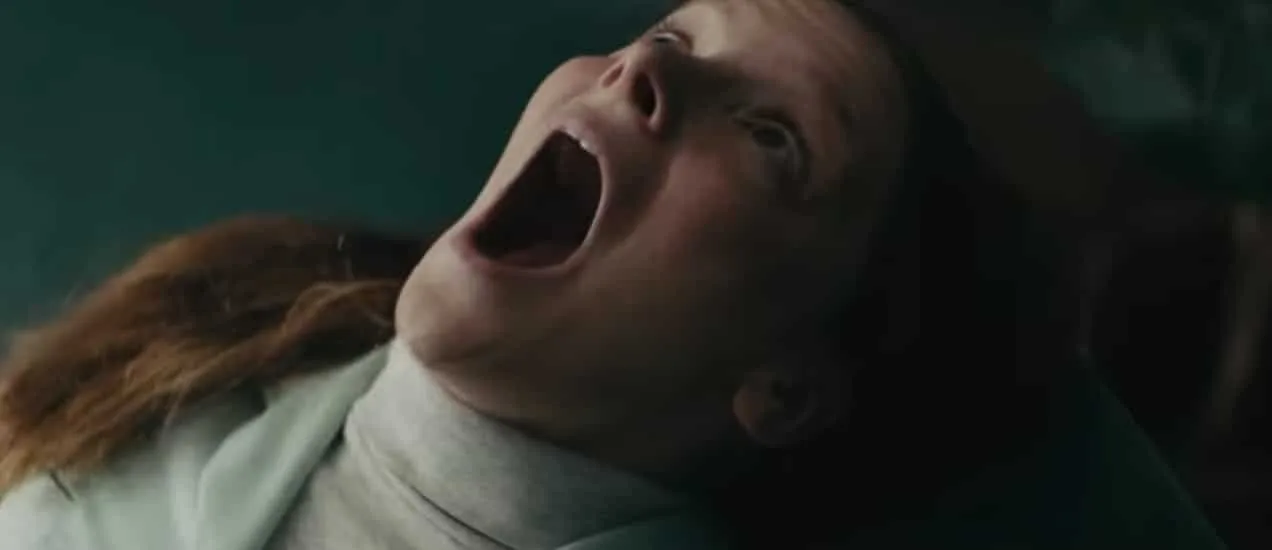Well, that was the year that was.
Every year when I write up a ‘best of’ list, I can’t help but add a preamble about how things have been, what developments there have been and so on; never has there been a year like 2020, and no preamble can really do justice to the impact of Covid on the arts – for fans and filmmakers alike. With cinemas closed, then open, then closed, and festivals by and large shifting to virtual formats during the course of the year, the experience of film-watching felt incredibly different in 2020. By some fluke, I managed to get out to two in-person film festivals this year – FrightFest Glasgow and Celluloid Screams – but this happened rather more by luck than judgement, and FrightFest beat the first lockdown by a matter of a few days. It’s been a volatile, unpredictable situation for everyone, and time will tell what’ll remain of the film industry in 2021 – it certainly won’t be an easy ride.
That all being said, people have shown themselves to be immensely resourceful throughout this whole time: existing festivals opted to go virtual, new festivals have appeared online, and great films have found their way to an audience. Here’s my Top 10 films of the year, then, posted here in the hopes that, if you’ve missed any of these thus far, you go out and support them, if you can. They are all in their own ways immensely worthwhile.
10. The Droving
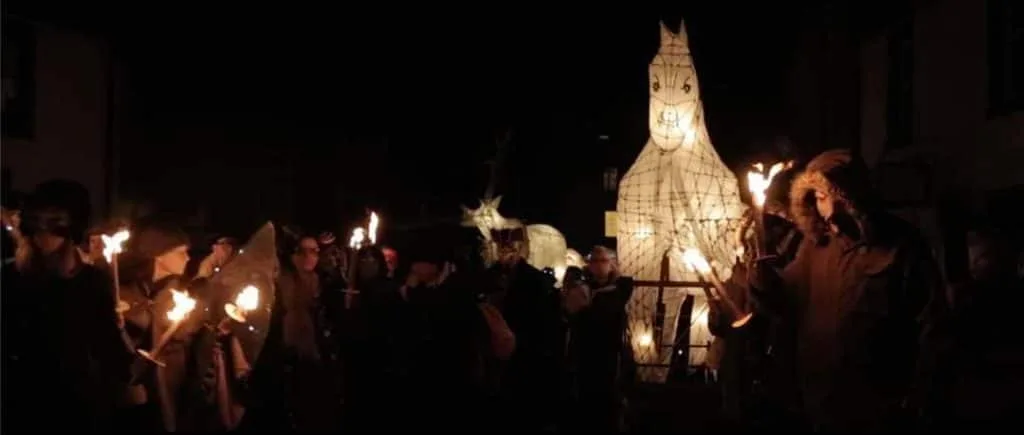
An unexpected, subtle horror film which manages to weave together its own mythology, The Droving shows that you don’t need a vast budget and garish effects to tell an effective story. Taking some folk horror elements but disrupting them (Martin is no clueless innocent at the mercy of a closed, cultish community for instance) leads to a stark and involving story of loss and alienation. You can read my full review here.
9. The Invisible Man
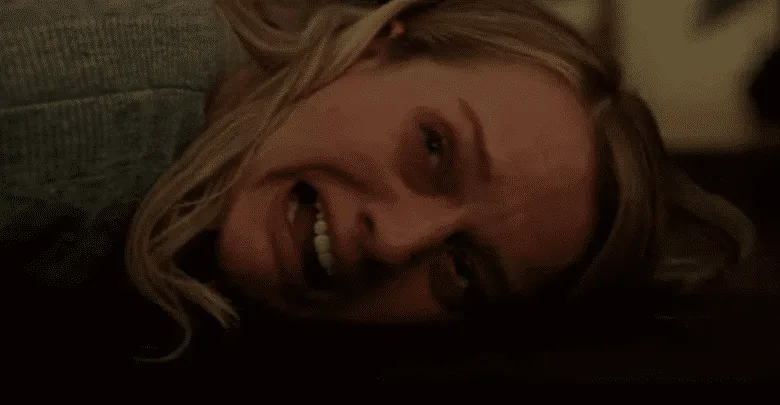
H G Wells’ stories have come in for a complete drubbing at the hands of scriptwriters in recent years – I’m still not quite over the experience of the BBC’s War of the Worlds – but happily, Leigh Whannell’s screenplay is superb. Yes, you can modify the existing story and yes, you can update it and yet retain the almost unbearable paranoia of the original tale. Here, it is shifted to the perspective of Cecilia (the magnificent Elisabeth Moss), an escapee from an abusive relationship whose partner, apparently, takes his own life, leaving everything to her and ostensibly freeing her from his presence. Or does he? Cecilia’s growing certainty that someone is watching her is incredibly effectively-handled; the film goes from a nightmare of gaslighting to something altogether more visceral. I watched most of this film from behind my hands. There’s a full review here.
8. Vivarium
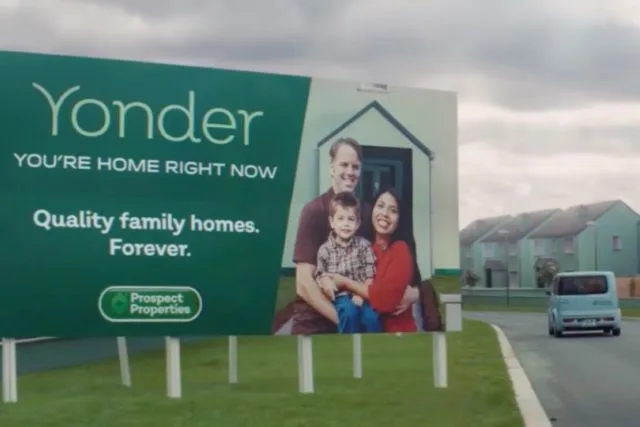
It’s a strange thing to behold that so many of the horrors I’ve enjoyed this year have coincidentally been about isolation and confinement. Maybe horror is always like that, and it’s simply more noticeable in 2020. Regardless, Vivarium really got under my skin; it’s a cruel, bizarre scenario whereby a young couple get stranded in an identikit suburbia, watched and exploited by some unseen force which uses them to ‘raise’ a child. It’s very uncomfortable viewing, surreal and sickly (with an excellent creepy child in Sennan Jennings) and a none-too-subtle critique of the trammels which people find themselves in. I review the film here.
7. The Columnist
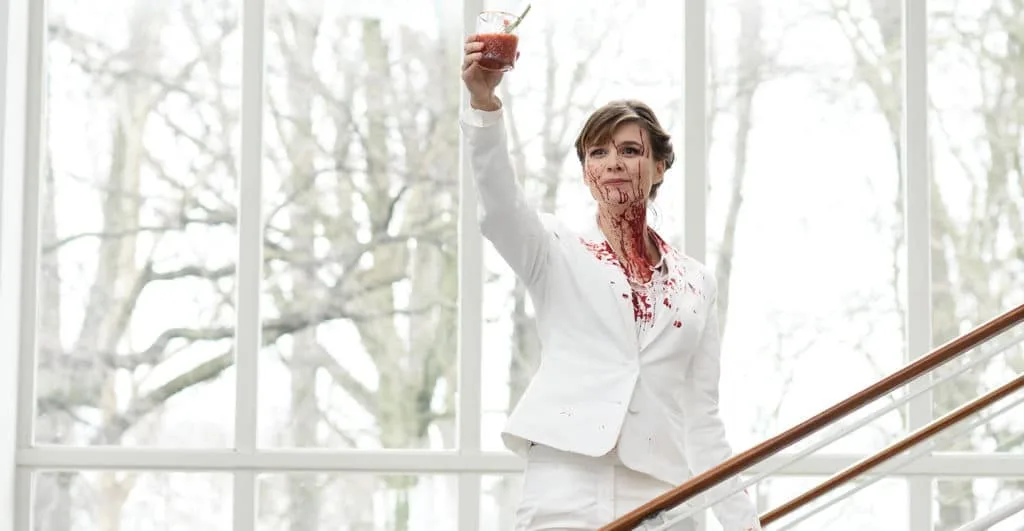
A razor-sharp ‘what if?’ based on the pitfalls of social media, The Columnist tells the story of Femke, a journalist who is subjected to some incredibly spiteful online trolling. Never be a woman on the internet. At first electing to move away from social media altogether, Femke comes back to it again and again and, when she realises that her new neighbour is responsible for some of the comments, she takes matters into her own hands. Soon the fantasy of dealing with the trolls seems to act as a boon for her writing, but gradually, her behaviour catches up with her. It’s an interesting blend of black humour and quite profound personal breakdown. You can check out a fuller review here.
6. The Stylist

…And another profound personal breakdown, this one blending a garish horror plotline with immensely well-realised characterisation; it works, and more than that, it’s rather affecting to see Claire (Najarra Townsend) painfully losing her grasp on reality, in the pursuit of a life and a friendship which was never really hers to begin with. Claire fantasises about belonging; she emulates people who cross into her orbit in the most graphic way imaginable, by taking their scalps. When she’s approached by regular customer Olivia (Brea Grant) and when this friendly, affable young woman makes overtures of friendship to Claire, Claire begins to spin out of control – growing obsessive, paranoid and dangerous. But you can never hate Claire; she comes across as so frail and damaged, you can only feel that crushing sense of things about to go terribly wrong for her. The final act of this film is genuinely excruciating. You can check out a full review here.
5. Bleed With Me

Yet another film about female alienation? Bleed With Me is a super-subtle take on the perils of female friendships; come to think of it, there’s a few points of overlap with The Stylist, right up to the escalating sense that Rowan (Lee Marshall) is not all she seems. Invited to go along with her friend Emily to her cabin for the weekend, all seems to be well – Rowan is a little of a spare wheel given that Emily’s boyfriend is present too – but then Rowan begins to suspect that someone or something is drawing blood from her whilst she sleeps. There are mysterious wounds on her arm, spots of blood on her nightdress. She becomes paranoid and defensive; meanwhile, her relationship with Emily begins to feel very strange and discomfiting. The film deliberately keeps its secrets, never really allowing the audience the clarity of knowing what exactly is going on – is Rowan disturbed? Or is someone injuring her? It’s an incredibly uncomfortable watch which escalates into a very engaging, if distressing head trip. You can check out my review here.
4. My Heart Can’t Beat Unless You Tell It To
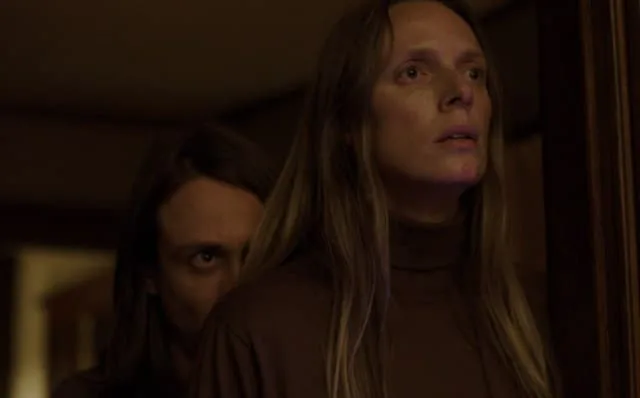
Oh man, this was a heartbreaker. My Heart Can’t Beat Unless You Tell It To is the story of a family unit in crisis. Three siblings, Dwight, Jessie and younger brother Thomas live a strange life, avoiding the outside world and – crucially – committing murders in order to ‘feed’ Thomas. Dwight, who has to shoulder the most part of this burden by finding and delivering people to the house, is clearly craving an existence beyond this, and draws closer to a prostitute – this Jessie will not tolerate, as she is wracked with fear that Dwight is going to leave her and Thomas – but all three of these people are afraid, and crave friends and connections. The collision course is clearly set – how we get there is via a quiet sort of agony with impeccable performances throughout. You can take a look at my review here.
3. A Ghost Waits
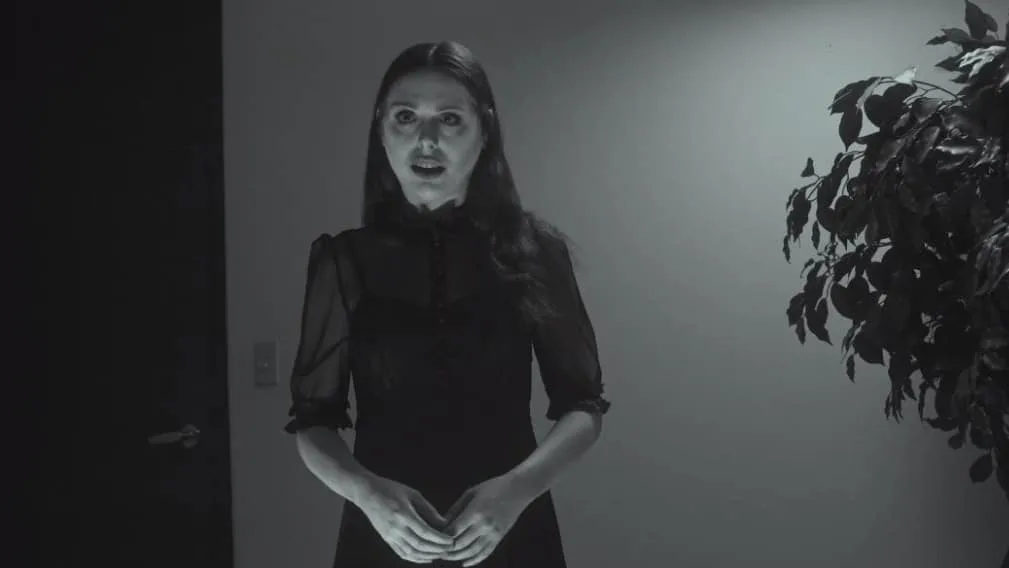
When Jack has to stay overnight in a house which he is renovating, he realises there’s something rather bizarre about this place. It seems it’s haunted – by Muriel, a ghost who has been employed for the purpose. This is her house, and she is good at her job. Thing is, Jack becomes drawn to this woman and seeks to know her better, which causes conflict with the agency; but he begins to fall for her. It’s a brilliant, gentle story which draws together its own afterlife mythology and performs a charming, sympathetic character study on both Jack and Muriel. It’s one of those rare films which shows exactly what independent film can achieve. Take a look at the full review here.
2. The Swerve

Holly (Azura Skye) is a woman whom, we quickly determine, is on the verge of a personal crisis. Papering over the cracks with medication is only providing her with so much; her dismissive husband and children don’t really seem to see her, and the only attention which she does get is from a male student, which in itself is a source of chaos and concern. When Holly takes a stand during a dreadful family gathering and drives herself, alone, back to her house, she begins to fantasise that she swerved her car into another vehicle, killing or injuring the driver. Similarly, she sees a mouse in her kitchen which she begins to obsess over, almost as if this creature’s arrival has disrupted her ability to feel secure in her own home. Watching Holly’s world begin to spiral out of control is honestly painful to watch, and Skye is incredible. The film escalates into, and I choose this word carefully, a full-blown tragedy. Please check out my review here.
1. Saint Maud

Maud (Morfydd Clark) is a nurse who gets a job looking after the terminally-ill Amanda Kohl at her home; she’s a quiet, gentle character who takes her duties seriously, as well as sheltering behind her born-again Christianity. Kohl (Jennifer Ehle) seems to genuinely take an interest in Maud, but she’s a complex character who isn’t willing to accept her illness with grace. Some of her behaviours are very troubling to Maud. Maud, in her distress, begins to feel that she has been sent to Kohl to save her soul; we also gather that Maud is not all she seems either, and has desperately been trying to close the door on a troubled past. The story which unfolds is incredibly involving and unsettling; again, despite Maud being a fallible, flawed character, we feel for her, and the more she throws herself into her faith, the more she seems to be at breaking point. Saint Maud is meticulously realised, a film which exudes its own sense of doom and loss.
